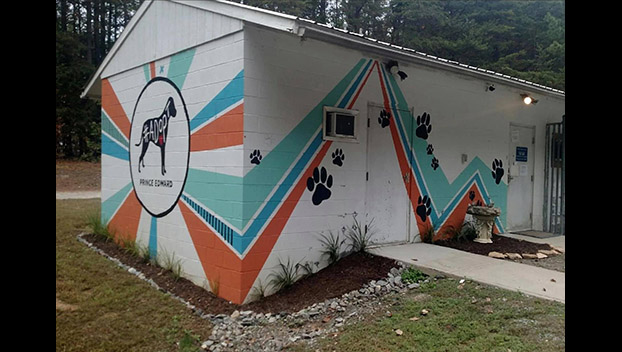Briefing On Town Wells
Published 4:28 pm Thursday, September 13, 2012
FARMVILLE – The Town of Farmville's reliance on wells in a drought emergency should not detrimentally affect residential wells outside the Town's limits, according to a Powhatan well driller.
The Town has greatly increased the capacity of two wells at the water treatment plant to a combined total of 777,600 gallons per day, if the plant were operated 24 hours a day-it is not-or more than four times their previous output.
One of the wells is now 501 feet deep, and increased from six inches to 10 inches wide, the other nearly 300 feet deep.
More wells may also be drilled by the Town for use in case of severe drought, to supplement the Appomattox River.
Robert Royal, president and operator of Royal Pump and Well, founded in 1950, performed the capacity-expanding work on the Town's emergency water supply wells and briefed Town Council during its September meeting Wednesday night.
As for any concerns of homeowners relying on wells outside the Town's limits, Royal said he doesn't believe they will be negatively affected.
“This water was encountered, the majority, much deeper than the average residential well has been drilled in this area,” Royal said, adding, “your water treatment plant is not sitting right in the center of a subdivision where you have 40 or 50 other wells concentrated within a quarter, half or one-mile radius. It's far less populated than that.
“The impact, if any-and I'm not a hydro-geologist-but I see very low, if any, impact you have to be concerned with,” he said.
“And the area of re-charge, which means where rain falls and filters through the earth to repopulate the fractures or breaks in the rock to store up and contain this high yield (of water), there's very little competition for that recharge,” Royal, who has worked in the well business for 41 years, told council members. “So that water there is waiting for your use when you have an emergency situation.”
Royal told Town Council that the survey report the Town is receiving proposals on from a hydro-geologist “can better speak to that but there's already been comments made by them that these two locations were in very favorable locations as far as recharge and low impact on neighboring properties…”
Royal addressed the notion and concern, raised by council member Dr. Edward I. Gordon, who spoke of the Town drilling “into a body of water, a lake that's down in the earth and I think the fear is that if you go into that will, if we put other wells in, will we be pumping into the same one or different ones and that's what the study is all about, is that correct, to make sure that they're different ones, or if they're the same one would it be able to handle additional (withdrawal of water through the wells),” Dr. Gordon said.
The study is to identify potential well sites, Royal said, “that would not be directly connected to the same fracture network.”
Royal then illustrated the network of underground water sources and told council members that instead of thinking about an underground lake they should think of a network of water streams of various depths, widths and volumes-like a highway system-not one big pool of water.
“Envision that you've opened up a road map, showing all the different roads in the state. You have interstate highways, like I-64, I-95, I-85. You also have major tributaries-Route 460, 360, US Route 60. You turn off…you take Highway 45 or 15 into town. These are all different sized roads, all the way down to the little streets inside the city. So if you can think in your mind, picture that that's what the fractured bedrock is like.
“You have large major fractures and of course, just like the interstate, you can drive fast, a lot of cars down that road. There is the ability for a lot of water to be stored and then released upon pumpage and demand,” Royal explained. “And coming off of those major roads, or major fractures, you have the smaller secondary circuitry of roads. All of these combined have some impact to the co-efficiency of how that water's going to travel through that fracture and how much you can get.”
So the hydro-geological study the Town is planning, he said, “helps to identify the major fracture networks that will store the most amount of groundwater in a region or an area, and then where you can tap into that and be able to achieve higher yielding wells with lower impact on pulling that fracture network down.”
Doing so will help ensure that the Town doesn't hurt residential wells in the area, according to Royal.
“That's what you want to do, is have a network that you don't ever become dominant, where you (don't) take all the water,” Royal said. “And that's what a good geological survey will do…
“Think that way-instead of a lake or a pond or river basin-think of many fractures that are inter-connected…” he explained to council members.
Royal told them that the Town of Farmville has “been blessed upon receiving such a precious resource that we must always protect and be gracious and humble when we receive it.”





